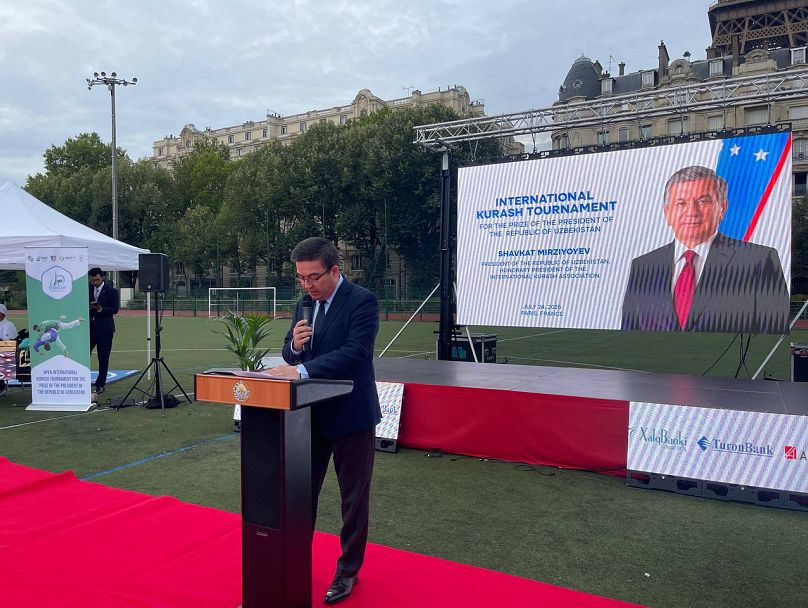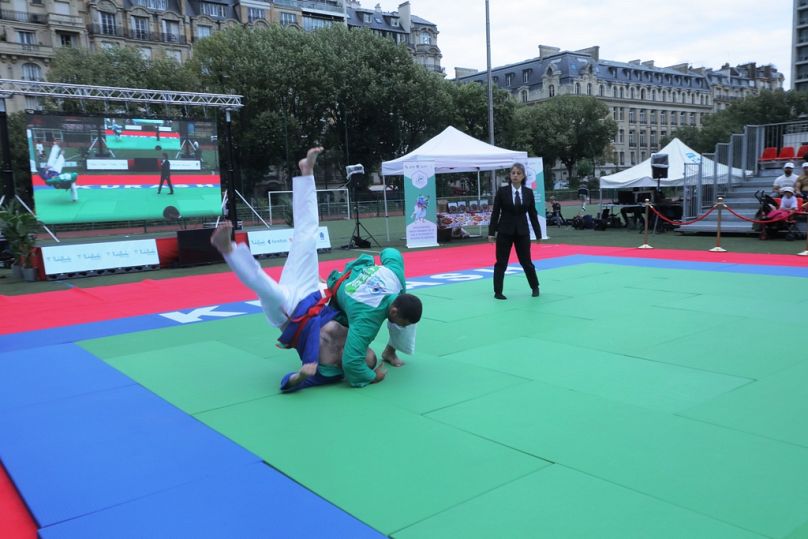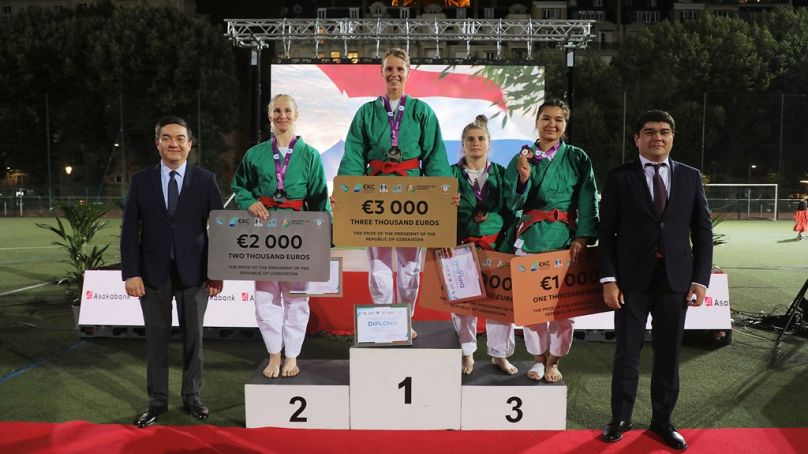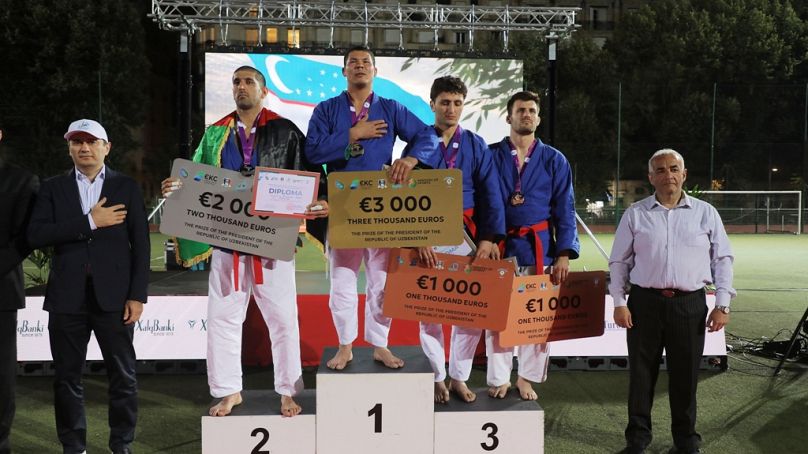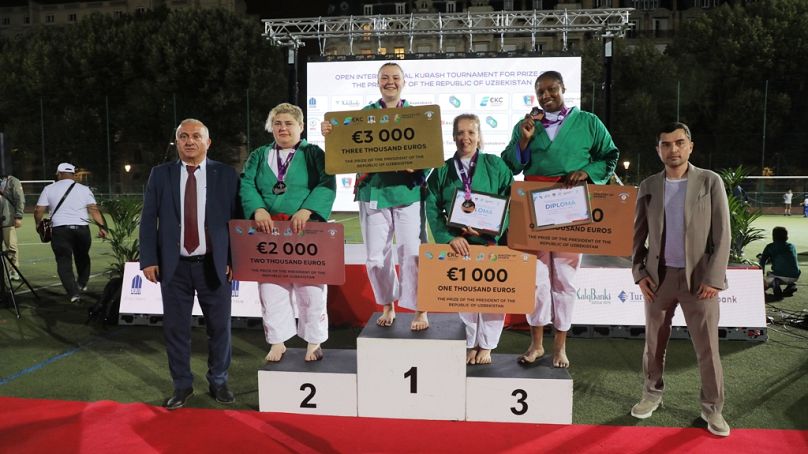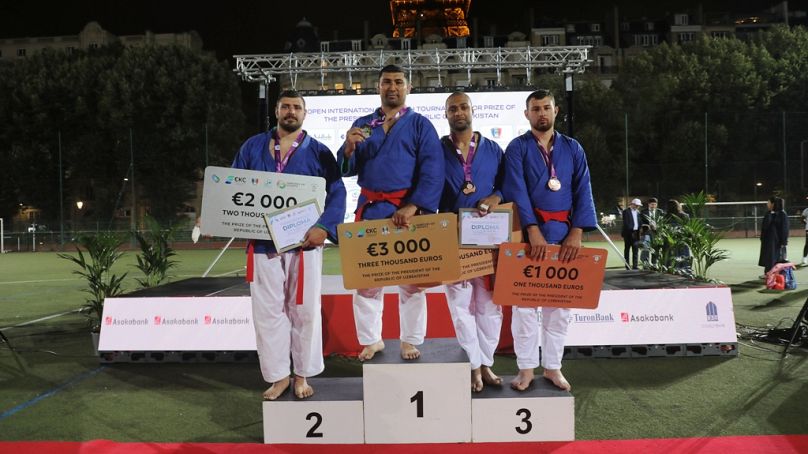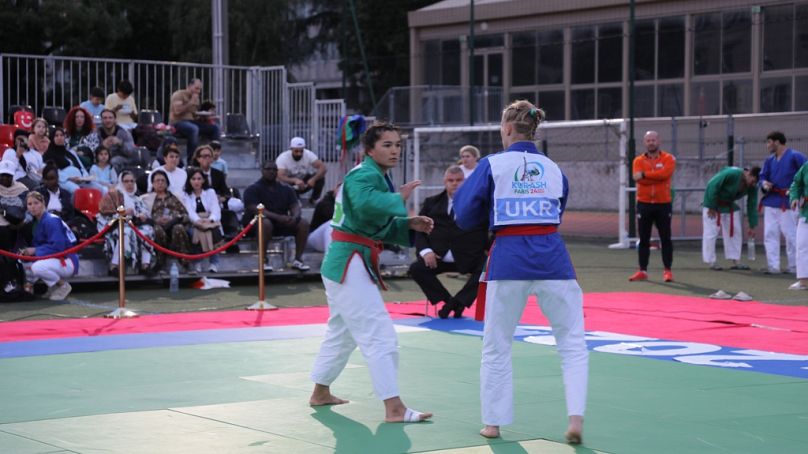There’s no place to hide once you step forward to fight on the gilam, so fittingly the International Kurash Tournament took place in the open air at the Emile Anthoine Stadium, right beneath one of the Eiffel Tower, one of world’s most famous landmarks.
For those who gathered athletes, diplomats, sports leaders and curious Parisians, it soon became clear – this was not just about medals.
The opening ceremony began with athletes parading under their national flags as the anthem of Uzbekistan played across the square. Among the dignitaries, Uzbekistan’s Ambassador to France, Nodir Ganiev, was the first to address the audience describing the competition as “a vivid example of friendly relations, cultural exchange and sports diplomacy between the two nations”.
Moments later, Mohammad Reza Nassiri, Secretary General of the International Kurash Association, spoke of a turning point for the sport: “A positive move forward for the development of Kurash worldwide”.
The night Paris discovered Kurash
As the evening progressed, the crowd around the mat grew thicker, bathed in the glow of the Eiffel Tower’s lights. For many in attendance, it was their first time seeing Kurash.
“I expected to see Greco‑Roman wrestling,” admitted Maxime Boyer, a representative of Toulouse’s city hall, still surprised after watching several bouts. “Instead, I discovered a discipline closer to judo but with its own soul. It’s a beautiful image, a thousand‑year‑old Uzbek tradition showcased in one of France’s most symbolic places”.
British coach Paul Sawyer was equally taken in: “I’ve travelled the world, but I’ve never been to an event under such a historic background. Europe was a little behind Asia in embracing Kurash, but now the ball is rolling”, he said.
The matches themselves were electric. Four weight categories: men’s -90 kg and +90 kg, women’s -70 kg and +70 kg, each brought its own stories. France, as host nation fielded four athletes in every class, ready to challenge Uzbekistan’s champions.
In the heavyweight division, Sherali Juraev from Uzbekistan battled Dutch contender Ansah Ferdinand in a semi-final that was decided in the dying seconds. Juraev won, and then went on to face French athlete Cédric Benjamin in the final. Juraev’s clean victory sealed his reputation and the gold medal.
In the -90 kg class, Alikhon Nodirov of Uzbekistan fought his way through every bout to claim the title.
On the women’s side, the contests showed Kurash’s reach beyond Central Asia. Britain’s Nun Chloe Jessica was unstoppable in +70 kg, while in -70 kg, the Netherlands’ Nayome rose to the top.
Each winner left the mat with a diploma, a cash prize and crucial ranking points for the WSP International Tournament, but perhaps more importantly, with the respect of a new audience.
Dreams that stretch beyond Paris
Kurash has been practiced for more than 3,500 years, yet its ambitions are firmly in the future. “This tournament, in front of the Eiffel Tower where the 2024 Olympics were held, shows we’re ready for the next step”, said Bakhtiyor Kadirov, First Deputy Chairman of the Kurash Federation of Uzbekistan. “Our goal is to see Kurash in the Olympic Games”.
Winner Sherali Juraev, holding his medal shared the same view: “Today we demonstrated the strengths of our national wrestling. We hope to see Kurash on the Olympic stage in the future, and we are grateful to France for the warm reception”.
More than medals
Even after the final whistle and as the crowd began to leave, the atmosphere endured. The notes of Uzbek music from the opening night hung in the air, while athletes and fans lingered, discussing moves, tactics and the unexpected grace of a sport many were seeing for the first time.
For three days, on a mat laid out beneath the Eiffel Tower, that bridge was alive. And for many watching, it was only the beginning of Kurash’s journey into the global spotlight.



